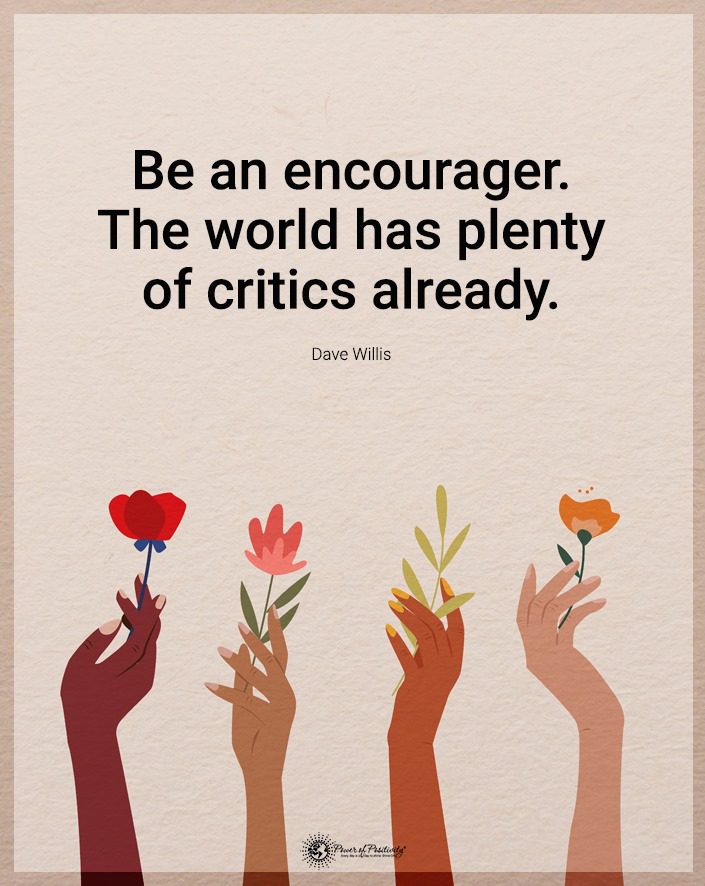You don’t need to look busy to be productive.
In a world that often equates constant activity with productivity, it’s easy to overlook the value of behaviors that seem inactive, lazy, or non-productive on the surface. But things are not always what they seem when it comes to being productive.
Just because someone appears busy does not mean they’re accomplishing anything. Conversely, some quiet or reflective behaviors appear to be “doing nothing,” when someone’s really moving the proverbial ball forward.
“Being busy does not always mean real work. The object of all work is production or accomplishment and to either of these ends, there must be forethought, system, planning, intelligence, and honest purpose, as well as perspiration. Seeming to do is not doing.” – Thomas A. Edison
What’s the Difference Between Being Busy and Being Productive?
The difference between being busy and productive lies in our actions’ effectiveness and purpose. Being busy often involves engaging in numerous activities or tasks, giving a sense of constant motion and activity. However, this busyness doesn’t necessarily equate to achieving meaningful results or making any progress towards goals. It’s characterized by a high volume of tasks that may or may not be important or urgent.
As a result, someone may have a feeling of being overwhelmed or stretched thin. In contrast, productivity means effectively using time and energy to achieve specific, meaningful outcomes. It’s not just about doing many things but the right things aligning with one’s goals and priorities.
Productivity is about focus and intentionality. It involves prioritizing one’s to-do list based on its importance and impact rather than simply ticking off items on a to-do list. It may appear “lazy” on the surface, as this person can finish more things in less time.
But how?
Good question! A productive person can identify which tasks will significantly affect their goals and concentrate their efforts on those things. This approach often requires saying no to less important activities and avoiding distractions.
In contrast, busyness can be a form of procrastination or a way to avoid tackling more challenging but important tasks. It’s possible to be busy all day and accomplish little of real value or move one closer to one’s objectives.
Moreover, productivity is closely linked with efficiency – doing tasks in a smarter, not harder, way. This productive mindset might involve automating routine tasks, delegating when appropriate, or finding more effective methods of completing work.
Indeed, productive individuals often have a clear plan or strategy for their day, allowing them to work systematically toward their goals. On the other hand, busyness can lead to burnout and stress, as it often lacks this strategic approach. Being busy can create an illusion of progress, but without the focus and efficiency of productivity, it can result in minimal advancement.
Fifteen Behaviors That Look Lazy But Are Productive in Reality
Ultimately, the key difference lies in the outcome: productivity leads to meaningful achievements and fulfilling goals. But busyness may result in little more than exhaustion and a never-ending to-do list.
1 – Quiet Planning and Reflection Can Appear Lazy
Sitting quietly and planning might look like inactivity, but it’s crucial to effective time management. This thoughtful planning allows for setting clear goals and prioritizing tasks to reach them. It may also mean pondering a strategy to help tackle them efficiently.
“The essential question is not ‘How busy are you?’ but ‘What are you busy at?” – Oprah Winfrey
2 – Daydreaming and Creative Thinking
Daydreaming is often seen as a sign of distraction. However, it’s a powerful tool for creative thinking. Allowing the mind to wander freely can lead to innovation – new ideas and solutions that structured thinking might not produce.
“There is no doubt that creativity is the most important human resource of all. Without creativity, there would be no progress, and we would be forever repeating the same patterns.” – Edward De Bono
3 – Taking Regular Breaks Might Look Lazy
Regular breaks during work might seem like slacking off, but they are essential for maintaining long-term productivity. These pauses are not a luxury. Rather, breaking away to clear the mind is necessary for better mental health. These breaks can help prevent burnout, refresh the mind, and improve focus.
“Sometimes we just need a mental vacation. Take a 15 minute break and start planning your next vacation.” – Catherine Pulsifer
4 – Delegating Tasks May Seem Lazy
Delegating tasks to others might appear as avoiding work. But, managing time and resources is an effective way to keep advancing toward a team goal. It allows all team members to focus on tasks that align with one’s strengths and skills, thereby increasing overall productivity.
“If you really want to grow as an entrepreneur, you’ve got to learn to delegate.” Richard Branson
5 – Mindful Meditation
Engaging in mindful meditation might appear to be lazy or just sitting still. However, meditation can be a powerful practice for improving mental clarity and focus. It also may increase one’s emotional well-being. All of that often adds up to better productivity.
“There’s no substitute for the practice of meditation.” – Wayne Dyer
6 – Prioritizing Sleep
Prioritizing a full night’s sleep might be considered laziness, especially in cultures that value overworking. However, adequate sleep is crucial for cognitive function, decision-making, and better health outcomes.
“Sleep is the best meditation.” – Dalai Lama
7 – Learning and Personal Development
Spending time reading, learning, or engaging in personal development activities might not produce immediate tangible results, but it’s an investment in long-term personal and professional growth.
“There is no end to education. It is not that you read a book, pass an examination, and finish with education. The whole of life, from the moment you are born to the moment you die, is a process of learning.” —Jiddu Krishnamurti
8 – Networking and Socializing May Look Lazy
Networking and socializing seem lazy and appear to be leisure activities. But they are a necessary part of career growth and opportunities. Building relationships can lead to collaborations, insights, and new perspectives. Meeting new people can become an unexpected source of encouragement and motivation.
“We can improve our relationships with others by leaps and bounds if we become encouragers instead of critics.” – Joyce Meyer
9 – Organizing and Decluttering
Taking time to organize and declutter might delay other tasks and make you appear lazy. However, it creates a more efficient and pleasant work environment, significantly boosting productivity. When you spend less time looking for the things you need to accomplish something, you spend more time completing your important tasks.
“Outer order contributes to inner calm.” – Gretchen Rubin
10 – Scheduled Downtime Looks Lazy
Taking scheduled breaks or downtime during work hours might appear unproductive or lazy, especially in high-pressure environments. However, these rest periods are crucial for maintaining long-term productivity and mental health. Regular breaks help prevent burnout, reduce stress, and refresh the mind, improving concentration and efficiency when returning to work tasks.
“Workaholics aren’t heroes. They don’t save the day, they just use it up. The real hero is home because they figured out a faster way.” – Jason Fried
11 – Listening and Observing
Spending more time observing and listening rather than actively participating in group settings or meetings can be mistaken for disengagement. However, reflective observation is a powerful tool for understanding complex situations and formulating well-thought-out responses. Observers often provide valuable insights and solutions, having fully understood the nuances of the discussion.
“If you make listening and observation your occupation, you will gain much more than you can by talk.” -Robert Baden-Powell
12 – Thoughtful Response Delay
In our fast-paced digital world, immediate responses are often expected. Delaying a response, especially in email or messaging, can be seen as a sign of procrastination or disinterest. However, taking time to think before responding ensures thoughtful, well-considered communication. This approach can prevent misunderstandings and lead to more effective and meaningful exchanges.
“Pause whenever you’re about to react harshly and you’ll avoid doing and saying things you’ll later regret.” —Lori Deschene
13 – Minimalist Work Approach Might Look Lazy
Adopting a minimalist approach to tasks and projects, where one focuses on simplicity and essentials, might seem like a lack of effort or detail. However, this approach maximizes efficiency and effectiveness by eliminating unnecessary complexities. Instead, someone can focus on what truly matters. It leads to clearer objectives, streamlined processes, and, often, higher-quality outcomes.
“Nothing is less productive than to make more efficient what should not be done at all.” – Peter Drucker
14 – Setting Boundaries
Setting boundaries, like saying no to additional tasks, might appear uncooperative or unproductive. However, it’s crucial to focus on current responsibilities and ensure quality work.
“People think focus means saying yes to the thing you’ve got to focus on. But that’s not what it means at all. It means saying no to the hundred other good ideas that there are. You have to pick carefully. I’m actually as proud of the things we haven’t done as the things I have done.” – Steve Jobs
15 – Reflecting on Failures and Mistakes
Reflecting on failures and mistakes might look like dwelling on the past, but it’s an important learning process. This reflection leads to growth and improvement, preventing future errors.
“I’ve failed over and over and over again in my life. And that is why I succeed.” — Michael Jordan
Final Thoughts on Actions That Look Lazy But Are Actually Super Productive
These behaviors demonstrate that productivity isn’t always about visible action or busyness. Someone who appears at first glance to be lazy may actually have a more strategic approach to work and life. As a result, they experience more productivity and are even more successful. Recognizing and valuing these behaviors can lead to a healthier, more balanced workload and increased personal growth.


















